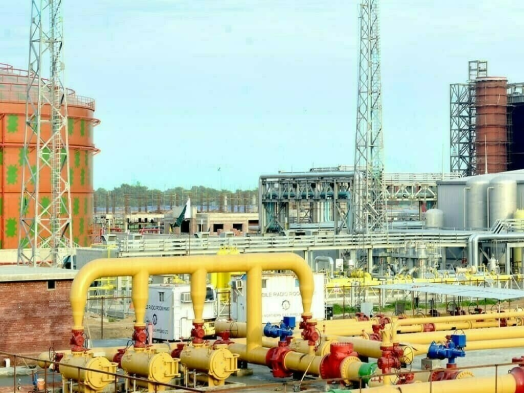PESHAWAR – Pakistan’s US and France based real estate assets are at risk of confiscation as a United Kingdom court moves to enforce an arbitration tribunal decree that fined it US$5.9 billion for retracting a 28-year old gold exploration contract with foreign mining companies.
This month, a British Virgin Islands’ court-ordered to establish a value on the Roosevelt Hotel in New York and the Scribe Hotel in Paris as part of an attachment process of the properties owned by Pakistan International Airlines Investment Ltd (PIAIL), a state-run company officially registered in the British Virgin Islands.
In July 2019, the International Center for Settlement of Investment Disputes (ICSID), a World Bank-run arbitration tribunal, hit Pakistan with a $5.9 billion fine for revoking in 2011 a gold-cum-mineral exploration license held by Tethyan Copper Company (TCC), a joint venture of Barrick Gold Corporation of Australia and Antofagasta PLC of Chile.
TCC had sought damages worth $8.5 billion for the premature termination of the Chagai Hills Exploration Joint Venture Agreement, a contract originally signed between Pakistan’s Balochistan provincial government and Australian mining company Broken Hill Property (BHP) in 1993 for rights to the Reko Diq mine.
BHP later sold its stake to TCC, which administered the gold and minerals mines from 2008 to the time legal proceeding started against the termination of the agreement.
Known for its huge gold and copper reserves, Reko Diq mine is estimated to have the world’s fifth-largest gold deposit. Situated in a small desert area of Chagai in northwestern Balochistan, the mine is close to the border of Iran and Afghanistan.
Its annual production is estimated at 200,000 tons of copper and 250,000 ounces of gold derived from 600,000 tons of concentrate. The TCC’s assessment estimates the annual profit from the mines at about $1.14 billion for copper and $2.5 billion for gold, totaling $3.64 billion annually.
The TCC’s calculation puts the total profit over the 55-year life of the mine at $200 billion, which is much less than independent estimates which put the figure as high as $500 billion.
When TCC approached Pakistan’s High Court In November 2019 to enforce the tribunal’s award, Pakistani authorities sprang into action to get a stay on the whopping fine, which represented nearly 2% of Pakistan’s gross domestic product (GDP) at the time.
“The government will pursue the proceedings initiated by the company in any jurisdiction and the government reaffirms its commitment to protecting national assets wherever they may be located,” a communique issued from the attorney general’s office said.
The tribunal, during proceedings on the dispute between Pakistan and TCC, decided the case in favor of the Australian company, imposing a $4.08 billion penalty and $1.87 billion interest fine on Pakistan. The full details of the case are yet to be released by the tribunal.
TCC’s website reveals that the Reko Diq Mining Project in Pakistan’s restive province of Balochistan had initiated to build and operate a world-class copper and gold open-pit mine at a cost of about $3.3 billion.
The 1998 agreement with Pakistan had mandated the company to mine the Reko Diq’s gold and minerals deposits throughout the 55-year life of the reserves.
However, the project hit a snag in November 2011 when the Balochistan mining authority revoked TCC’s mining rights on the grounds that the company had secured the contract in a “non-transparent” manner.
The government claimed that experts had found the TCC’s feasibility report unsatisfactory, alleging that it did not contain any details about the actual processing of mined precious metals.
The government, TCC claimed, was obliged to manage and finance the processing refinery for the mined metals, which the company had not budgeted for the purpose. By that time, the company had already invested some $220 million in Reko Diq’s mine.
The Australian mining company first sought arbitration against the mining authorities’ decision in 2012. The World Bank arbitration tribunal decided the case against Pakistan in 2017, with the multi-billion dollar fine imposed subsequently in 2019.
Local Pakistan courts see the situation differently. The Supreme Court of Pakistan, in January 2013, declared the Chagai Hills Exploration Joint Venture Agreement void because it was ruled to conflict with the country’s laws.
A three-member bench of the apex court, headed by then chief justice Iftikhar Muhammad Chaudhry, annulled the agreement.
Months after Justice Iftikhar’s ruling, his son Dr Arsalan Iftikhar was made the vice chairman of the Board of Investment of Balochistan (BIB). Arsalan, who was a medical practitioner, was tasked with luring investment to the Reko Diq project.
Syed Naveed Qamar, a Pakistan Peoples’ Party’s senior parliamentarian and a member of the Public Accounts Committee (PAC), told Asia Times, “we believe there is nothing wrong with the contracts or its execution, but the problem started when the judiciary stepped in and the Supreme Court declared the agreements void.”
Ironically, the government’s accountability and investigation agencies, which miss no opportunity to move against political opponents, opted against investigating what some saw as one of the shadiest deals in Pakistan’s history.
Analysts and observers claim that “vested interests” within the political and military hierarchy have managed to hide who was truly responsible for the colossal national loss caused by the tribunal decision.
Qamar said that the parliament sensed as early as January 2018 that Pakistan was likely to be hit by a huge fine in the Reko Diq mining case, due to the mishandling of successive Balochistan provincial governments.
The PAC, he said, had questioned the authority of provincial governments in allowing changes to the ownership of the Australian company, notwithstanding that the original Chagai Hills Joint Venture Exploration Agreement did not have such a provision.
He said that the secretary of mines of Balochistan, while briefing the PAC in 2018, had informed that the ICSID proceedings were in a “quantum stage” while several reports and financial models indicated that a ruling on the damages was imminent.
“When we approached the relevant ministries for details of the Riko Diq and other such cases, where arbitration tribunals issued awards against Pakistan, the authorities did not come up with a convincing response and tried to evade the information,” he maintained.
Qamar said that the PAC had sought to identify the individuals and institutions responsible for the losses based on poor or compromised decision-making. For now, the Pakistani state will shoulder the huge cost, including through possible asset seizures abroad.





